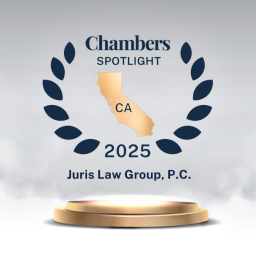
Corporate Transactions and Business Structuring: Foundations for Sustainable Growth
In today’s competitive landscape, a company’s legal foundation transcends mere formality—it becomes a strategic asset. From structuring entities to orchestrating exits, corporate transactions can either propel or hinder a company’s growth.
For emerging and fast-scaling companies, aligning legal structures with business objectives is paramount. This alignment supports growth, attracts capital, manages risk, and paves the way for successful exits.
Supporting Startups and Private Companies
1. Business Formation and Entity Structuring
Choosing the appropriate business entity—be it an LLC, corporation, or holding company—sets the stage for how your business operates, scales, and raises capital. Each structure offers distinct advantages and considerations regarding ownership goals, liability exposure, tax treatment, and investor expectations.
Key considerations include:
- LLCs and multi-member operating agreements
- S-corporations and C-corporations
- Delaware holding companies for IP or brand protection
- Conversion from LLC to corporation in anticipation of funding rounds
2. Founder Relationships and Equity Planning
Founders must navigate the complexities of equity splits, vesting schedules, and cap table management. Drafting comprehensive founder agreements that anticipate future events—such as new hires, outside investment, or buyouts—ensures alignment from the outset.
Additional aspects to consider:
- Equity and stock option plans
- Early-stage financing strategies
- Investor onboarding and SAFE/convertible note documentation
3. Strategic Partnerships, Licensing & Joint Ventures
Rapid growth often necessitates strategic partnerships. Whether through licensing deals or joint ventures, well-crafted contracts are essential to align incentives, allocate risks, and protect core assets.
Areas of focus include:
- Joint venture agreements with domestic and international partners
- Licensing entities for IP, product, or brand expansion
- Distribution and co-manufacturing deals in the CPG space
4. Mergers, Acquisitions, and Business Reorganizations
Growth through acquisition or preparing for an exit requires meticulous legal planning. Navigating regulatory issues, performing due diligence, negotiating deal terms, and ensuring smooth closures are critical components.
Key activities encompass:
- Asset and stock purchases
- Spin-offs and corporate reorganizations
- Investor roll-ups and management buyouts
- Post-merger integration planning
5. Commercial Contracts and Risk Allocation
Contracts are the operational backbone of any business. From vendor agreements to strategic customer contracts, it’s vital to negotiate and draft agreements that reflect your company’s real-world risk tolerance and strategic priorities.
Essential contract types include:
- Master service agreements
- Supply chain contracts and manufacturing terms
- SaaS agreements and licensing terms
- NDAs, indemnities, and limitation of liability clauses
Why High-Growth Companies Choose Juris Law Group, P.C.
Founders and leadership teams choose Juris Law Group, P.C. because we act as more than legal counsel—we are strategic partners. Our goal is to understand your business model, funding roadmap, and exit strategy so that we can build the legal infrastructure that aligns with your objectives.
Whether we’re helping you prepare for a Series A round, acquire a competitor, or set up operations across state lines, we bring the same meticulous attention to detail, business-savvy thinking, and responsive service that defines our practice.
Question & Answer: Corporate Structuring for Growth-Focused Businesses
Question 1: What’s the best legal structure for a startup seeking venture capital?
Answer 1: Most venture capitalists prefer investing in Delaware C-Corporations due to their investor-friendly structure, ease of issuing stock options, and strong legal precedents. Transitioning from an LLC to a C-Corp can be advantageous when preparing for funding rounds.
Question 2: What should founders consider when splitting equity?
Answer 2: Founders should deliberate on vesting schedules, cliff periods, and clearly defined roles. It’s also prudent to plan for scenarios where a founder departs. Documenting these terms in a comprehensive founder agreement is essential.
Question 3: How can licensing entities help scale a brand?
Answer 3: Licensing entities enable brand owners to expand into new markets or product categories while maintaining control and generating revenue. Proper structuring of these deals safeguards intellectual property and limits liability.
Question 4: What legal issues arise in a business acquisition?
Answer 4: Critical issues include due diligence on intellectual property ownership and liabilities, determining the deal structure (asset vs. stock sale), and negotiating representations, warranties, and indemnities. Comprehensive legal guidance is vital throughout the M&A process.
Question 5: When should a company bring on a general counsel?
Answer 5: Growth-stage companies often engage outside counsel to act as their general counsel before hiring in-house. This approach helps manage legal risks, streamline contracts, and support investor relations without the overhead of a full-time hire.
Final Thoughts: Building Businesses on Solid Legal Ground
Establishing a robust legal foundation is crucial for any business aiming for growth. Key takeaways include:
- Entity Selection: Choosing the right business structure affects operations, scalability, and capital-raising capabilities.
- Founder Agreements: Clear agreements among founders prevent future disputes and align long-term visions.
- Strategic Partnerships: Well-structured partnerships and licensing agreements can accelerate growth while protecting core assets.
- M&A Preparedness: Being prepared for mergers and acquisitions ensures smoother transitions and favorable outcomes.
- Contract Management: Comprehensive contracts mitigate risks and support sustainable business relationships.
Engaging experienced legal counsel in corporate transactions and business structuring is not just about compliance—it’s about strategically positioning your company for success.


